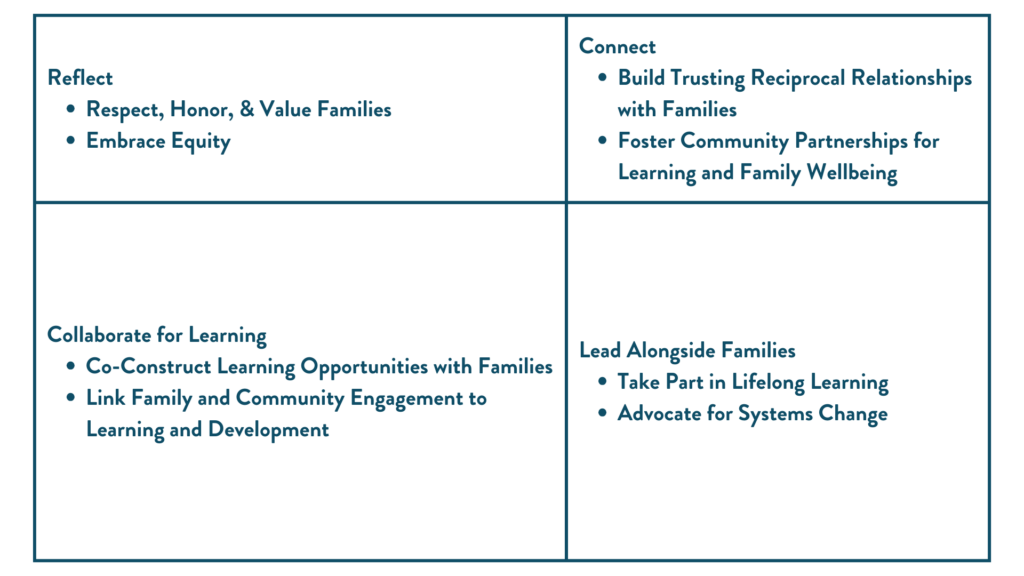Table of Contents
Parent engagement and community engagement effectively contribute to a supportive learning plan and environment that fosters student success on multiple levels. This comprehensive guide explores the essence of parent and community engagement, its evolution over time, and the manifold benefits it brings to students, teachers, schools, and the wider society. We will also delve into strategic methods to enhance engagement, outlining the roles and responsibilities of all stakeholders involved and the impact of these collaborative efforts on educational outcomes.
What is Parent Engagement?
Parent engagement refers to the active involvement of parents in their children’s education and school-related activities. It involves everything from participating in parent-teacher meetings to assisting children with homework. Think of it as a collaborative endeavor between home and school, aimed at enhancing educational outcomes and creating a supportive learning environment. Check out this article to learn more about How Possip Meets the Core Competencies of Family Engagement.
Here are the latest eight core competencies in family engagement from the National Association for Family, School, and Community Engagement (NAFSCE), which emphasize a holistic and inclusive approach to education:

You can read more about the competencies as defined by NAFSCE here: Family Engagement Core Competencies: A Body of Knowledge, Skills, and Dispositions for Family-Facing Professionals.
Historical Context and Evolution of Parent Engagement
Historically, parent engagement often meant limited visits to school or occasional volunteering. However, as research has underscored its impact on student success, schools have increasingly sought to deepen parent involvement. This evolution has shifted from passive to active parent engagement. Schools are now employing various strategies to involve parents more directly in decision-making processes and everyday educational activities.
Benefits of Parent Engagement
Academic Benefits for Students
Engaged parents significantly boost their children’s academic performance. Research shows that students achieve higher grades, attend school more regularly, and are more likely to pursue higher education when their parents are involved.
Social and Emotional Benefits
Parent engagement leads to better social skills, improved behavior, and enhanced self-esteem among students. Children feel more supported when their families are involved in their school activities, contributing to better emotional health.
Benefits for Teachers and Schools
Parent engagement improves teacher morale and job satisfaction. Engaged parents provide valuable feedback and support, helping teachers refine their teaching strategies and effectively manage their classrooms.
Community and Societal Benefits
Effective parent and community engagement strengthens the whole community. Schools that successfully engage parents and community members often see benefits like lower crime rates, improved student health, and increased civic participation.
Strategies for Effective Parent Engagement
Communication Channels
Schools need to establish clear, consistent, and accessible communication channels. Possip’s platform, with its capabilities to gather real-time feedback, is a vital tool for maintaining open communication between parents and schools.
Traditional Methods of Parent Engagement
Traditional methods such as parent-teacher meetings, newsletters, and community events remain effective. These methods provide direct, personal interaction, which is crucial for building trust and relationships.
Digital Communication with Parents
In the digital age, tools like emails, school websites, and mobile apps enhance parent engagement. Possip’s platform excels in offering streamlined digital communication methods that include feedback loops and data analytics, making it easier to promptly address parents’ concerns.
Building Trust and Relationships with Parents
Schools must work to foster relationships with families through consistent positive interactions and by being responsive to their concerns and feedback.
Involvement in Decision Making
Encouraging parents to participate in school decisions that affect their children can lead to greater commitment and satisfaction. This involvement also helps parents understand the challenges schools face, creating a more cooperative environment.
Providing Support and Resources to Parents
Schools should equip parents with resources to help them support their children’s education at home. This includes educational materials, workshops, and access to support services. Here are some additional Ways To Win and our Top 7 Family Engagement Tools.
Roles and Responsibilities
Role of Parents
Parents have a primary responsibility to support their children’s educational journeys by staying informed and actively participating in school activities and decision-making processes. NAFSCE describes the importance of seeing families as funds of knowledge: “Funds of knowledge is a term that underscores how family-facing professionals can activate and capitalize on building on the strengths of students and their families as resources for learning.”
Here are 60 Parent Engagement Ideas To Boost School Involvement.
Role of Teachers and School Staff
Teachers and school staff should encourage parent engagement by providing a welcoming environment. This can happen through being approachable, and sharing resources that help parents support learning at home.
Role of Non Parent Community Members
Community members, including local businesses and organizations, can support schools by providing resources, funding, and expertise, thereby enriching the educational experience for students.
Role of Educational Administrators
Administrators are crucial in setting the tone by creating policies that encourage collaboration between staff and parents and by allocating resources for engagement activities.
Building a Community Engagement Plan
Steps to Develop a Comprehensive Community Engagement Plan
Developing an effective engagement plan involves assessing current engagement levels, setting clear goals, and outlining strategies to achieve these goals. It involves continuous evaluation and adjustment.
Involving Local Businesses and Organizations
Partnerships with local businesses can provide schools with additional resources and support, from sponsorships to educational programs, enhancing the overall quality of education.
Measuring the Success of Your Community Engagement Initiatives
Success measurement can be achieved through surveys, attendance records at school events, and academic outcomes. Regularly reviewing these metrics helps in fine-tuning engagement strategies. Here are other basics to measure and increase parent engagement.
Challenges and Solutions of Parent Engagement
Common Barriers
Common barriers include lack of time, language differences, and cultural disparities. Addressing these effectively requires tailored strategies that consider the diverse needs of the school community.
Overcoming Language and Cultural Differences
Possip’s platform, which offers multilingual support, is an excellent tool for bridging language gaps, ensuring that all parents, regardless of their primary language, can engage with their children’s education. For more ideas and a deep dive into the patterns in data Possip has regarding responses we see submitted in languages other than English, check out this event recap: Breaking the Language Barrier.
Addressing Socio-Economic Disparities
Socio-economic disparities can be mitigated by providing equitable access to resources and support for all students and families, fostering a more inclusive school environment where every student has the opportunity to succeed.
Curriculum: How to Engage Parents!
Parents care about what their kids learn – and how they learn it. They have opinions and ideas as well. Teachers are experts on what they teach, how they teach it, and why their subject matters.
Possip Reporter and Tennessee AP teacher, Savannah Staley, has provided us with solutions for your curriculum!
How can schools help parents learn about – and give input to – what their kids learn? How can teachers and districts share their knowledge and expertise?
We’ve got some tips!
1. Give Parents Information!
Parents should know that what their child’s school or district teaches, and why they teach it. What is taught varies widely across the United States. As a Texas middle schooler I had a year of Texas History in 7th grade. Surely none of the other 49 states offer Texas history :).
2. Don’t Leave Parents to Fill in the Blanks
Though news outlets are national – what is taught and how it is taught is very local. Sometimes parents assume their child’s school is teaching something that may – in actuality – not be taught.
Therefore, when schools and districts don’t give parents information – they are left to fill in the gaps. While in the past, many students came home with textbooks that parents could use as a guide or understanding of what their child was learning, that’s rarely the case now.
Some best practices in giving parents information include:
3. A Semester Syllabus
Another particularly helpful item for parents of high schoolers: give parents a syllabus or map for what their child will learn over the course of the year.
4. Public Links to the Standards or Textbooks
Sometimes it’s hard to provide a lot of detail – but even sending parents information with links to the standards their child will be learning can be helpful. Put this information in multiple places – your Facebook page, School websites, District websites, and as a standing corner in your routine newsletters.
5. Book Lists
Especially depending on the age, parents are curious about what their child is reading. Parents have different levels of comfort with some material – and even more so if they are caught off guard with questions their child may ask them. The more you can give them information about the books that will be read up front, the better opportunities they will have to share any questions, connections, or ideas about the book list. For more on why it’s important to engage parents with their children’s reading, click here.
6. Curriculum List
Share the name of the curriculum you are using – and if the curriculum is teacher or school-created, let parents know that. Parents may want to look up the curriculum to learn more.
7. Remediation and Acceleration Opportunities
Give parents information about how they can best remediate or accelerate at home. Parents don’t always expect the school to provide every opportunity for their child to get additional support. However, without information about what their child is learning or should know, it’s hard for parents to find opportunities to support their child with additional supports.
8. Videos
Teachers could create a 2-5 minute video talking through what kids will learn in their class this year, how they will learn it, and what role parents can play in helping their child learn. Particularly during the pandemic virtual schooling era teachers did great videos showing parents what their child was learning, so that parents could support them as well.
9. Get Information Too
It’s always best to give information when you also know information, and learn from parents. What do they care about? What would they like to see their children learn? Additionally, how would they like to see their children learn? What assets or expertise might parents have to offer to your curriculum and learning environment?
By knowing and understanding what your parent community wants to see in the curriculum, you can best know what to communicate to them about – and how you can adjust your curriculum expectations.
Conclusion
By actively involving parents and the community in the educational process, schools can create more supportive and inclusive environments that promote student success and well-being. While challenges such as cultural differences and resource limitations exist, strategic approaches and tools like Possip can effectively bridge these gaps. Utilizing tools fosters deeper engagement and cooperation. Moving forward, embracing these practices and continuously refining engagement strategies will be crucial in adapting to future trends and changes in education. Emphasizing the collective effort and commitment to student success, this guide serves as a resource for educators and administrators seeking to harness the full potential of their communities.

Speed Read (tldr) of Parent Engagement at Schools: Building A Plan for Student Success

- Definition and Evolution: Parent engagement involves active involvement in children’s education, from attending meetings to assisting with homework. Historically passive, it has evolved to include direct involvement in decision-making and educational activities, reflecting its increasing impact on student success.
- Benefits: Effective parent engagement enhances academic performance, social-emotional well-being, and teacher satisfaction. It also positively impacts community health and civic participation, making it a crucial element in holistic student development.
- Plan for Success: Successful engagement requires clear communication, building trust, and involving parents in school decisions. Utilizing both traditional methods and digital tools like Possip, along with overcoming barriers such as language and socio-economic disparities, is essential for fostering meaningful connections between schools and families.
Read below for resources, tips, and the why!


